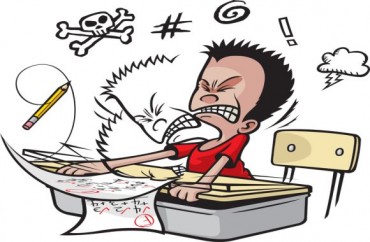
Naomi Schaefer Riley’s article in the New York Post last week is yet another “well, duh!” look at school discipline policies (and no offense meant whatsoever), this time comparing the suspension rate of charter schools to those of traditional public schools.
She notes that the Seattle Public Schools’ board recently announced that there would be no more suspensions permitted in its elementary schools — “because they want to ‘starve the [school-to]-prison pipeline at its source.’”
But, as they say, correlation is not causation, and one of the reasons for the growth of charters is that they do not put up with a lot of the behavioral nonsense that, sadly, is all too common in public schools today.
Charter schools suspend more, not fewer, students, because discipline is the first step to learning.
Take Success Academy Charter Schools, which in 2014 suspended 11% of the 7,000 students in 22 schools, almost three times as high as the 4% average for the city’s district schools. Ann Powell, a spokesman for Success, says, “We think suspension is not the only tool, but it’s one of the ways in which we can work with families and ensure that we have an orderly, safe school.”
Even at the elementary-school level, Powell says, “Young children will be violent and can use inappropriate language.” The results of the orderly atmosphere at Success schools are clear.
Students, even from some of the worst neighborhoods in the city, are outperforming kids in Westchester on New York state exams.
It is not only violent offenses that merit suspension. Marc Epstein, the recently retired dean of Jamaica High School in Queens, notes, “Thing that destroys a school is insubordination. It makes it impossible for teacher to run a classroom. If you ask a kid to be quiet and he tells you to shut the f— up . . . and then a dean comes in and takes him out for two minutes and brings him back, and he does the same thing. You can’t run a classroom like that.”
Just about everyone understands that, with notable exceptions being career edu-crats and social justice “advocates” like Mayor Bill de Blasio of New York City who, as Riley notes, “proposed a new discipline code this year, which would make it even more difficult to remove bad actors from schools.”
Why would any parent interested in his/her child’s education desire a school where troublemakers are perpetually coddled?
One thing I do take issue with in Riley’s article is the contention that teachers unions “seem totally uninterested in student discipline.” The rank and file union members (of all political stripes) — that is, classroom teachers — whom I’ve known all place a very high priority on it.
Perhaps union bigwigs aren’t as interested in student discipline as they have to answer to politicians and myriad advocacy groups, but those in the “trenches” certainly don’t want chronically disruptive kids ruining instruction for everyone else.
Like The College Fix on Facebook / Follow us on Twitter
IMAGE: Shutterstock





Please join the conversation about our stories on Facebook, Twitter, Instagram, Reddit, MeWe, Rumble, Gab, Minds and Gettr.